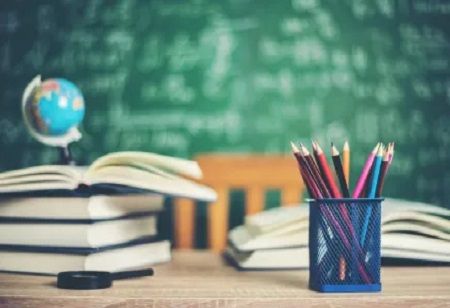-
- US higher education faces credibility crisis with visa revocations, surveillance on campuses, and erosion of academic freedoms under Trump's renewed presidency.
- Hong Kong emerges as a global education alternative, doubling international student intake, expanding DEI efforts, and offering post-study IANG visas for long-term employment.
- Global student migration trends shift, with rising interest in Canada, France, and Hong Kong as students seek safe, inclusive, and opportunity-rich academic environments.
The recent belligerent policies of the US towards higher education made life difficult for foreign students and scholars in the country. Actions like revocation of visas and increased scrutiny of activities on campus have upset lives and raised serious issues regarding constitutional freedoms, academic freedom, and the nation's reputation as the world's top destination for education. Since President Donald Trump's re-election and up to the end of last month, close to 1,800 student visas have been cancelled, with most of the instances of arrests, detentions, and deportations. These policies definitely send a strong and disturbing message: the US is not the safe haven, welcoming place it used to be for international talent anymore.
The examples of Mahmoud Khalil and Rumeysa Ozturk demonstrate the human toll of these policies. Khalil, a graduate of Columbia University and a green card holder, in his Sunday op-ed in The Guardian criticized the US for its hypocrisy. He was arrested at his New York home for attending pro-Palestine demonstrations. Though no charges were formally brought, his green card was canceled, and he is now facing deportation. Ozturk, a Tufts University student of Turkish origin, was arrested without warning after jointly writing a student editorial calling for her university to disengage from firms with Israeli connections. Such episodes indicate a disquieting trend in which activism and free speech are coming under greater scrutiny in the guise of immigration enforcement, a course that is contrary to academic freedom and open discussion.
Beyond isolated cases, the federal government has targeted institutional independence. Policy requests and budget reductions in federal funding have attacked universities viewed as hotbeds of liberalism, pushing them to engage in a precarious balancing act between autonomy and acquiescence.
Others believe the policy undermines the independence of universities and creates a precedent for unwarranted federal encroachment upon academic affairs.
As the US grapples with this crisis of confidence, other nations have moved in to take advantage of the vacuum. Canada, for instance, has experienced a boom in applications from American students, with the University of British Columbia and Simon Fraser University recording 27 percent and 23 percent rises, respectively, in graduate applications from American citizens. France has also emerged as a alternative, with programs such as the University of Aix-Marseille's 'Safe Place for Science' program garnering more than 30 applications in 24 hours after its launch. The movements reflect an increased interest in stable, inclusive, and friendly academic settings.
In this changing environment, the Hong Kong Special Administrative Region is well-positioned to take advantage of the opportunity. With five universities in the top 100 worldwide, the city presents an attractive alternative for international scholars and students looking for academic quality and career prospects. The city's mix of top-notch institutions, geographic location, and receptiveness to international students makes it an attractive choice for those considering destinations other than the US or Europe.
The stability of Hong Kong is also an important distinguisher. Of late, the government of HKSAR has actively moved to recruit international students by doubling the intake limit of non-local students at publicly funded institutions to 40 percent of places for local students. Such a policy pronouncement conveys a powerful signal of inclusivity and openness to prospective students and conveys to them that Hong Kong is welcome to them. Furthermore, while the US has reduced its diversity, equity, and inclusion (DEI) programs, universities in Hong Kong continue to prioritize inclusive and diverse campus environments. Initiatives such as peer support programs, multi-faith centers, and cultural celebrations establish a sense of belonging among students from all walks of life. The majority of Hong Kong universities are signatories of the DEI Charter hosted by the Equal Opportunities Commission.
Post-graduation prospects further add to the magnetism of Hong Kong. The Immigration Arrangements for Non-local Graduates (IANG) of Hong Kong offer a smooth channel for foreign students to enter the working population. The IANG visa enables graduates to remain in Hong Kong for 24 months without the need for a job offer and can be prolonged forever as long as one continues working. This policy not only encourages students to construct their careers but also coincides with Hong Kong's mission of fulfilling an expected manpower shortage of 180,000 by the year 2028.
Finally, the HKSAR presents a special proposition: excellence in scholarship in a global financial hub that is a gateway to the rest of China and, in particular, the Guangdong-Hong Kong-Macao Greater Bay Area (GBA). Students enjoy state-of-the-art research infrastructure, globally networked faculties, and collaborations with industry that offer unparalleled career prospects.
The US restrictive approach to higher education offers Hong Kong a unique opportunity to become an international education center. But the moment must be seized with more than the ingredients. Hong Kong needs to project its image to the world successfully so that overseas students and scholars are aware of what the city can provide. This is the moment to accentuate Hong Kong's stability, inclusiveness, and vibrant learning culture. The moment is here, the moment is now, and Hong Kong is poised to take the lead.
🍪 Do you like Cookies?
We use cookies to ensure you get the best experience on our website. Read more...

